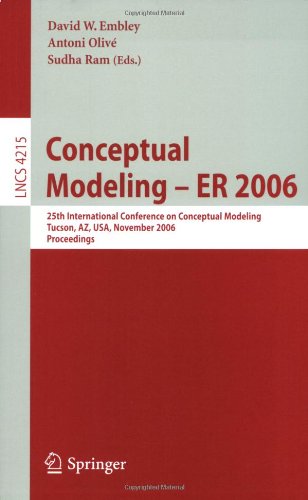

Most ebook files are in PDF format, so you can easily read them using various software such as Foxit Reader or directly on the Google Chrome browser.
Some ebook files are released by publishers in other formats such as .awz, .mobi, .epub, .fb2, etc. You may need to install specific software to read these formats on mobile/PC, such as Calibre.
Please read the tutorial at this link: https://ebookbell.com/faq
We offer FREE conversion to the popular formats you request; however, this may take some time. Therefore, right after payment, please email us, and we will try to provide the service as quickly as possible.
For some exceptional file formats or broken links (if any), please refrain from opening any disputes. Instead, email us first, and we will try to assist within a maximum of 6 hours.
EbookBell Team

4.7
46 reviewsConceptual modeling has long been recognized as the primary means to enable so- ware development in information systems and data engineering. Nowadays, conc- tual modeling has become fundamental to any domain in which organizations have to cope with complex, real-world systems. Conceptual modeling fosters communi- tion between information systems developers and end-users, and it has become a key mechanism for understanding and representing computing systems and environments of all kinds, including the new e-applications and the information systems that support them. The International Conference on Conceptual Modeling provides the premiere - rum for presenting and discussing current research and applications in which the - jor emphasis is on conceptual modeling. Topics of interest span the entire spectrum of conceptual modeling including research and practice in areas such as theories of c- cepts and ontologies underlying conceptual modeling, methods and tools for devel- ing and communicating conceptual models, and techniques for transforming conc- tual models into effective implementations. Moreover, new areas of conceptual mod- ing broaden its application to include interdependencies with knowledge-based, lo- cal, linguistic, and philosophical theories and approaches. The conference also makes major strides in fostering collaboration and exchange between academia and industry. In this year’s conference, research papers focused on XML, Web services, business modeling, conceptual modeling applied to human-computer interaction, quality in conceptual modeling, conceptual modeling applied to interoperability, requirements modeling, reasoning, the Semantic Web, and metadata management. The call for papers attracted 158 research papers, whose authors represent 27 different countries.